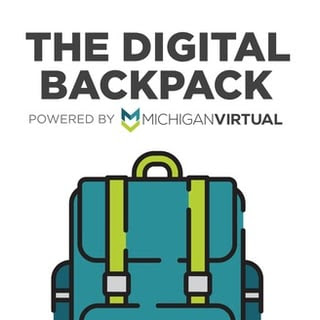A newsletter from the folks at the MVLRI.
Spring 2023 Newsletter
Four times a year, we send out a digest of published scholarship in the area of K-12 online and blended learning. Below you will find abstracts to several recently published articles — hand-picked by our Institute’s researchers — with links to the full text if you are interested in reading more.
|
The Education Trust-Midwest
|
In every classroom across our great state – from Monroe to Manistee and Mt. Pleasant to Marquette – every Michigan student deserves access and opportunity to the educational resources and support to realize a bright future. Yet for too long, Michigan’s education system has served as an engine of inequality when it should be providing opportunities for all students to achieve at high levels. Our state’s longstanding inequalities were compounded further over the last three years as students, families, educators, and communities faced unprecedented educational challenges amid the COVID-19 pandemic. And though many states – even those that were among the top-performing before the pandemic — lost ground, we now know that students in Michigan, a state that was not systemically well-positioned before COVID-19, fared worse than many states during the pandemic.
|
Moosa Alhadia, Dake Zhang, Ting Wang, & Carolyn A. Maher
|
This research synthesizes studies that used a Digitalized Interactive Component (DIC) to assess K-12 student performance during Computer-based-Assessments (CBAs) in mathematics. A systematic search identified ten studies, including four that provided language assistance and six that provided response-construction support. We reported on the one study that involved students with learning disabilities and three studies involved English Language Learners. One study focused on geometry, four studies on number and operations understanding, and five included a mixture of mathematics domains. Mixed results were reported as to the effectiveness of the available DICs. The research suggests that older children were more likely to benefit from availability of the DIC than younger children, and that DICs have greater impact on students with special needs.
|
This issue brief explores how policymakers can approach rethinking, redesigning, and rearchitecting next generation accountability systems. Next generation accountability systems can empower states, districts, communities, and schools with timely, relevant information and provide the capacity to analyze and continuously improve instruction and learning. After 21 years of the current accountability framework in federal and state policy in the United States, there is growing recognition that it isn’t working for our students, families, and communities to improve teaching and learning, nor preparing them for the future. Continuously improving education systems use evidence-based practices and performance frameworks to improve learning and monitor progress in real time. In response to ongoing feedback and data, they drive change to improve and evolve practice. Continuously improving systems evolve culture and structures to ensure that students get the supports they need in real time to support growth and success.
|
Florence Martin, Vanessa P. Dennen, & Curtis J. Bonk
|
In this introduction to the special issue on systematic reviews of research on online learning, we introduce the need for systematic reviews on online learning. Utilizing a three-tier lens focusing on systems, pedagogical, and people levels, we have selected nine articles for this issue. At the systems level, there are two articles that focus on research trends during COVID-19, and features of high-quality online learning. At the pedagogical level, five articles were included that address online learner collaboration, help-seeking strategies, intersubjectivity, invisible participation, and online assessment. Finally, at the people level, there are two articles. The first focuses on online learning for minoritized and first-generation students. The second examines moderators in asynchronous online discussions. This introductory article provides a short summary of the nine articles and concludes with implications for practitioners and researchers on using and conducting systematic reviews on various topics in online learning.
|
Subscribe to the Digital Backpack for more regular updates!
|
Want more frequent updates? Our research team regularly publishes blog articles on online and blended learning. By subscribing to the Digital Backpack blog, you’ll receive a weekly digest of Michigan Virtual’s latest articles sent to your inbox every Thursday.
|
Explore over 1,000 publications in our Research Clearinghouse
Though we only feature four or five resources per newsletter, we encourage you to visit our Research Clearinghouse to search for citations that may be of use to you. The Clearinghouse currently houses over 1,000 citations in the field of online and blended learning, and over 100 new citations are added each year.
If you have any questions about how to navigate this resource, please check out our “Getting Started Guide.”
|
What else do you want to see? Please feel free to offer any feedback on the Clearinghouse or any other MVLRI initiatives by emailing us at mvlri@michiganvirtual.org. Thank you!
|
|
Michigan Virtual, 920 Municipal Way, Lansing, Michigan 48917
|













 12 Unique Blogs Are Written By Professors
12 Unique Blogs Are Written By Professors
Leave a comment